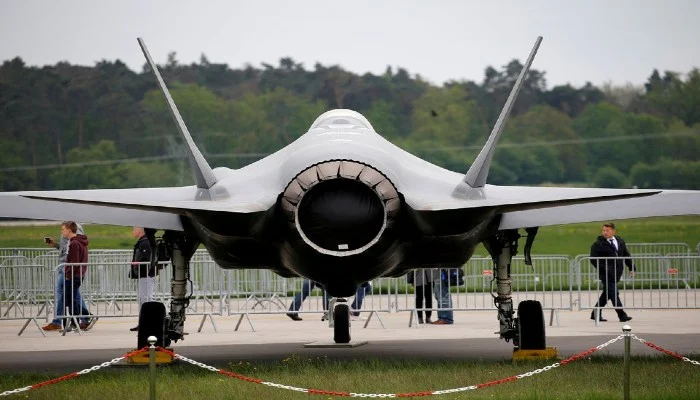WASHINGTON, July 19(ABC): The US Department of Defense is nearing an agreement with Lockheed Martin Corp for around 375 F-35 fighter jets over three years, three sources said on Monday, amid expectations of a price increase for the most common version of the jet due to lower quantities and inflation.
The first F-35A cost $221 million when it came off the production line in 2007. Since then, production quantities and know-how have increased, helping the price of the stealthy fifth-generation fighter fall to $79 million as it gained buyers.
Talks had stalled in recent weeks over data rights, two people familiar with the discussions said. But a Monday midday meeting in Washington could yield a “handshake” decision on both a price range and quantity, the people said. If an agreement is reached, finalized pricing would not be locked in for several weeks if not months, but an ultimate total value is in a range around $30 billion.
The handshake agreement would come as the aviation industry gathered for the return of the Farnborough Airshow, aiming for a display of confidence after the devastation of COVID-19, even though the only records likely to be broken at the event in southeast England are for sweltering temperatures.
Amid the pandemic, Lockheed began to foreshadow that the price of the jet could rise as economies of scale diminished and supply chains stumbled. A pre-pandemic forecast for this three-year buy showed around 485 jets could be included, but the 22% volume decrease would certainly impact overall cost of the F-35A, the most common version of the jet.
The F-35 comes in three configurations, the A-model for the US Air Force and US allies; an F-35 B-model, which can handle short takeoffs and vertical landings; and F-35C jets for aircraft carrier landings.
A Pentagon previous three-year “block buy,” signed in 2019, was for 478 F-35 fighter jets, allowing Lockheed to buy larger quantities of components to reduce costs by about 8%, to $34 billion, versus negotiating annual contracts.

